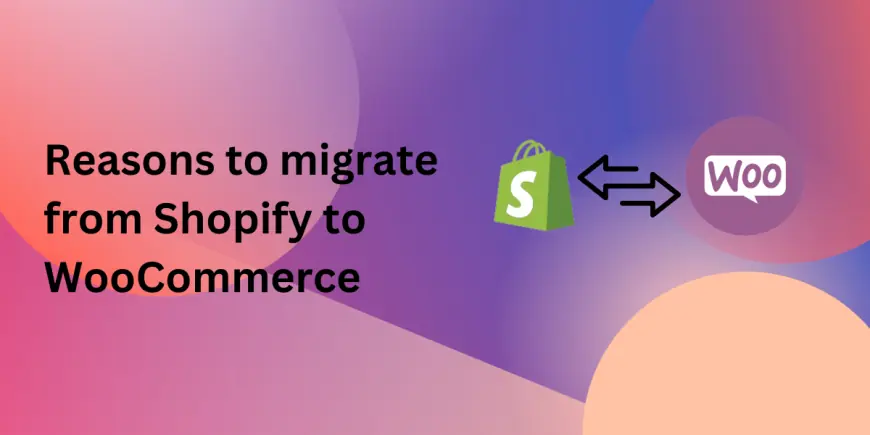Reasons to Migrate from Shopify to WooCommerce
Discover why migrating from Shopify to WooCommerce is a smart move. Enjoy better customization, cost savings, scalability, and complete control of your online store.

Shopify is a widely-used platform for eCommerce, but as businesses grow, many find WooCommerce a more flexible, cost-effective, and scalable alternative. Migrating from Shopify to WooCommerce allows store owners to leverage open-source functionality, enhanced customization, and reduced operational costs. If you're considering making the switch, here are the top reasons why WooCommerce might be the better choice for your business.
1. Greater Control with Open-Source Flexibility
WooCommerce is an open-source platform, giving you full ownership of your online store. Unlike Shopify, which is hosted and has restrictions, WooCommerce allows you to:
- Customize every aspect of your store, from themes to checkout processes.
- Integrate custom features or third-party plugins without limitations.
- Access and modify your store’s backend code for advanced functionality.
With WooCommerce, you aren’t locked into a specific ecosystem, enabling greater freedom to adapt your store as your business evolves.
2. Cost-Effectiveness
While Shopify has a straightforward pricing model, it often involves additional costs for:
- App subscriptions to extend functionality.
- Transaction fees unless using Shopify Payments.
WooCommerce, on the other hand, offers a more cost-effective solution:
- It is free to install, and while hosting and domain fees apply, these costs are often lower than Shopify’s subscription plans.
- You avoid transaction fees, reducing operational expenses in the long run.
For businesses aiming to maximize profit margins, WooCommerce's affordability is a significant advantage.
3. Superior Customization Options
Shopify’s app ecosystem is robust but limited compared to WooCommerce. With WooCommerce, you gain access to:
- Thousands of free and premium WordPress plugins to add features like SEO optimization, advanced analytics, and marketing automation.
- Customizable themes that allow for unique branding and design flexibility.
- Support for multilingual capabilities and localized payment gateways, making it ideal for global businesses.
This high level of customization ensures that your store can meet your specific needs, no matter how complex.
4. Full Ownership of Your Data
With Shopify, your store’s data is stored on their servers, and you have limited control over its export or usage. WooCommerce, being self-hosted, gives you complete ownership of your data:
- You can back up, migrate, or analyze your data without restrictions.
- There’s no risk of losing access to your store if you decide to move platforms in the future.
This ownership is particularly important for businesses that prioritize data privacy and scalability.
5. Scalability and Performance Optimization
As your business grows, WooCommerce provides better scalability options. With Shopify, scaling your store might require upgrading to higher-tier plans or dealing with performance bottlenecks. WooCommerce, however, allows you to:
- Choose hosting solutions that match your store’s size and traffic demands.
- Optimize your store's speed and performance with caching and CDN services.
- Use advanced plugins to manage large inventories or process high transaction volumes seamlessly.
WooCommerce’s flexibility ensures your store remains fast and reliable even as your business expands.
Steps to Migrate from Shopify to WooCommerce
Migrating from Shopify to WooCommerce can be streamlined with plugin like Shopify to WooCommerce migration. Key steps include:
- Exporting your Shopify data (products, orders, and customer information).
- Importing the data into WooCommerce using migration plugins or services.
- Customizing your WooCommerce store with themes and plugins to match your branding.
- Testing your new store to ensure a seamless customer experience before going live.
By following these steps, you can transition smoothly while maintaining data integrity and minimizing downtime.
Conclusion
Migrating from Shopify to WooCommerce provides unparalleled flexibility, cost savings, and control over your online store. With WooCommerce’s open-source nature, robust customization options, and scalability, it’s a superior choice for businesses looking to grow and adapt in a competitive eCommerce landscape.












